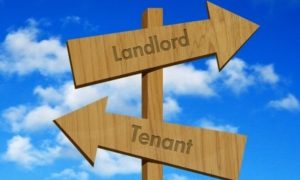Timing is key in the world of buying and selling. Whichever market you’re trading in, it’s always best to sell when the price is high and buy when the price is low! One way we can attempt to do this in the property market is to consult the House Price Index.
What Is The House Price Index?
The House Price Index measures the appreciation or depreciation of a given group of residential properties over a set period of time. From a homeowner or indeed a homebuyers perspective, it’s not advisable to get too bogged down with the technicalities of how the index is calculated. There are several house price indices that exist, and each varies on how it calculates the index. Some indices use actual sale prices, whilst others use mortgage offers. So just use it as a basis to establish trends in the property market.
A Brief Case Study…
Let’s roll back to the summer of 2012 when I bought my first property for £117,500. It was a beautiful one bedroom flat – a period conversion, with high ceilings and other characterful features. I loved that place to pieces, but when I met my (now) wife it just didn’t have enough space for her shoe collection, her jewellery collection, her memorabilia hoarding, her….ok. I’ll stop there, you get the idea.
So in 2014 I listed it for sale (needless to say, this lacklustre esperience with an unnamed local estate agent prompted the birth of Investate!). I’d invested around £3k in home improvements, and a further £5k to procure the freehold of a garage. So I thought that listing it for £125,000 was very generous and consequently I was anticipating a quick sale.
After 11 months of listing, a few nosy parkers, tyre kickers, and of course genuinely interested parties the flat ultimately sold for £120,000 in February of 2015. Now here comes the kicker…
Roll on to November 2017 and upon consulting Zoopla’s sold house prices, I discovered that the flat was re-sold for a whopping £165,000 by the new owner! That’s a £45,000 increment in just over 2.5 years!!
Why Consider the House Price Index When Selling My Home?
So why did it take me 11 months to sell my home when it was priced so competatively? Quite simply, the timing was all wrong.
In August 2007 the House Price Index peaked at an all-time high of around 650 points (Halifax House Price Index)! The market was buoyant and properties were exchanging hands effortlessly.
Then (cue the music of dread) shortly afterwards, the credit crunch hit! Northern Rock were granted emergency funding, later in the year Nationwide building society warned that house prices will stagnate in 2008, many mortgage lenders withdrew 100% mortgages, and the Bank of England cut interest rates for the first time since 2015 amidst signs of a slowing economy!
When we look at the House Price Index it all correlates nicely.
- July 2012: I bought my flat for £117,500 when the House Price Index was around 525 and the economy was stable. It wasn’t necessarily a bargain – it was probably valued quite accurately in a thriving property market.
- August 2012: The credit crunch hits.
- March 2014: I then listed my flat when the economy was starting to improve and the property market was slowly picking up. But there was still uncertainty in the market, people still weren’t spending or lending, and it was priced for a quick sale.
- February 2015: When the House Price Index was sitting at around 625 (a 19% increment from when I originally bought it), I sold my flat for £120,000. According to the House Price Index rise of 19% my flat was probably worth around £140,000. But given the instability of the economic climate, £130,000 was probably a more realistic sale price.
- November 2017: 2.5 years later, the economy had recovered greatly and as a result the House Price Index had been slowly improving for a few years by now. From the time that I originally purchased the flat in the flourishing property market of July 2012, the index had increased by 38% (from 525 to 725). Sure enough, the flat resold for a whopping £165,000 which equates to a 40% rise in value!
Conclusion
Looking at the statistics it appears that I’d bought the property for the market value, I’d then undersold the property, and the subsequent owner re-sold the property for its market value.
Hindsight is a wonderful thing. I’d listed my flat when the economy was gradually finding its feet. Back then it seemed like the right time to sell. However there was still too much uncertainty in the market. People still weren’t confident with the stability of the economy, and hence were reluctant to engage in large financial transactions such as buying property. But I did learn a few things from this experience:
- I personally wouldn’t ever use a high street estate agent again (disclaimer – that’s a large generalisation, because some are actually good I’m sure). I paid 1.5% commission (£1800!!) and yet I did 90% of the viewings myself. Coupled with this I think they could have valued my property more accurately (slightly higher) and negotiated a bit harder.
- I undersold my flat. In hindsight, I knew it was priced to sell at the time. But I should have stuck to my original asking price.
- If the economy isn’t great, it is likely that it will take longer to sell your home. Even though the economy was improving gradually when I listed my property there was still uncertainty in the market.
- The House Price Index enables us to gain an understanding of how active (or indeed not!) the property market is. It can be used alongside other metrics and tool sets to calculate a property valuation for your home. When comparing two stable property markets above, the index increased by 38% and the sold price increased by 40% – not a bad approximation!


